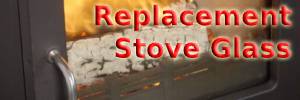The Public Committee Accounts Committee report backs full decant as best-value option to restore and renew World Heritage Site.
Full decant most economical, effective and efficient choice
A full decant of the Palace of Westminster while major works are undertaken is most likely to be the most economical, effective and efficient choice, the Public Accounts Committee report says.
In their report, the Committee endorses the option recommended by a Joint Committee of the two Houses of Parliament and states: "The best value for money will be achieved by getting on with it."
The Committee concludes the Palace, a World Heritage Site, is in an extreme state of disrepair with the risk of a catastrophic failure high and growing.
Doing nothing: not an option
Doing nothing is not an option, says the Committee, which describes its report as "a review of the robustness of the options, indicative costings and project management proposals" rather than an effort to repeat previous work examining restoration and renewal.
The full decant, as set out in the independent options appraisal commissioned by both Houses of Parliament, would see the Houses fully vacating the Palace while the project is completed over an estimated six years.
The order of magnitude costs for some improvements included were £3.5 billion or, with above a like-for-like replacement, £3.9 billion.
Project delivery should follow examples of Crossrail and 2012 Olympics
In the report, the Committee recommends the House of Commons "swiftly proceeds to a decision-in-principle and that the decision is to pursue a full decant from the Palace whilst it is restored, renewed and made ready for at least another 150 years as the home of Parliament".
It recommends the establishment of a two-tier delivery authority, building on the examples of Crossrail and the 2012 Olympics, and that National Audit Office should be empowered to audit the delivery authority and carry out value for money studies.
Effective public engagement will be vital
The Committee also highlights the importance of effective public engagement during the project, stating:
"We would stress to the project team that a strong communications plan is vital as the programme progresses, to actively communicate the benefits of the project to all stakeholders, including MPs, Peers, staff and the wider public.
It is, at its heart, a project that belongs to all of us in this country, not just to Parliament."
Chair's comment
Meg Hillier MP, Chair of the PAC, said:
"The Palace of Westminster is in urgent need of repair and major work will be required to make it fit for use by Parliament and the public for generations to come.
Delaying a decision on how that work should be carried out will only add to the costs and risks.
In our view that decision should be to endorse a full decant. This is our best chance to keep costs down, ensure safety and complete the work on this historic building as quickly as possible.
The longer the House of Commons spends mulling new or alternative options, the greater the chance that public money is wasted.
Clearly there are many details to be agreed and difficult choices will need to be made as restoration and renewal progresses. Effective oversight and clear communication will be essential to its success.
This will not be Parliament's last chance to scrutinise this complex and challenging project and the Public Accounts Committee will be watching costs closely to ensure taxpayers get the best deal."
Report summary
The Palace of Westminster is the home of the two Houses of Parliament. This internationally recognised building is in a state of extreme disrepair. The risk of a catastrophic failure is high and growing with every month that passes: fire, water penetration, sewage inundation, comprehensive electrical failure or some other mechanical breakdown are among the most likely causes. It must be repaired. For a World Heritage site that is the home of the "mother of parliaments", doing nothing is not an option.
Since this problem was properly acknowledged and confronted there have been two comprehensive examinations of the options for restoration and renewal of the Palace; one by independent consultants and another by a Joint Committee of the two Houses. The Joint Committee recommended the evacuation of the Palace for a period of around six years while it was comprehensively restored as the option which presented the lowest financial and technical risks.
The Public Accounts Committee has not attempted to repeat the work represented in these two thorough exercises. But as the House of Commons' guardian of the public purse, we believed we should satisfy ourselves, on behalf of the House, that the work was thorough and that the lessons that have been learned from our examinations of other major public works have been applied to this extremely complex, high-value major project.
Joint Committee's favoured option is most economical, effective, and efficient
This report should be regarded as a review of the robustness of the options, indicative costings and project management proposals, rather than an effort to repeat the detailed and prolonged work of technical experts and political stakeholders. In this we draw on our experience of examining how public money is spent and how major projects are set up to succeed or fail. We considered: cost, project management, safety and time. We are clear that there needs to be a detailed business plan before any final decision is made.
Our conclusion is clear: the option favoured by the Joint Committee is most likely to be the most economical, effective and efficient choice. The best value for money will be achieved by getting on with it. The Government should not delay any further in putting the proposal for a decision in principle before both Houses. There are many further details to be hammered out and some difficult further choices will have to be made.
The Public Accounts Committee, together with the National Audit Office, will continue to work to ensure that the best value for public money is achieved. The Palace of Westminster belongs to every citizen of the UK, and they deserve nothing less.
|
|
||||||
Check Todays Deals on Ebay.co.uk Your Comments:
Custom Search

|
You are in:
UK /
Accrington / North West
Find any Town in the UK, or Use UK map Local Google MAP for Accrington Check Todays Deals On Amazon.co.uk Check Todays Deals on Ebay.co.uk 


 Be Seen - Advertise on Qlocal Corporate Sponsors
Southport Piano and Music Academy Washroom Services Maximum Grounds Maintenance Southport Garden Services Ormskirk Garden Services Sanitary Bins Nappy Bins & Waste Disposal Confidential Shredding Services Legionella Risk Testing London Washroom Services Croydon Washroom Services Hounslow Washroom Services Wandsworth Washroom Services Havering Washroom Services Sanitary Bins London Clinical Waste London General Waste London Legionella Testing London Shredding London Tatoo Waste London Preston Bird Control Blackpool Bird Control
UK, Local Online News Community, Forums, Chats, For Sale, Classified, Offers, Vouchers, Events, Motors Sale, Property For Sale Rent, Jobs, Hotels, Taxi, Restaurants, Pubs, Clubs, Pictures, Sports, Charities, Lost Found
accrington,
accrington News,
|
|||||





 Reply With Quote
Reply With Quote